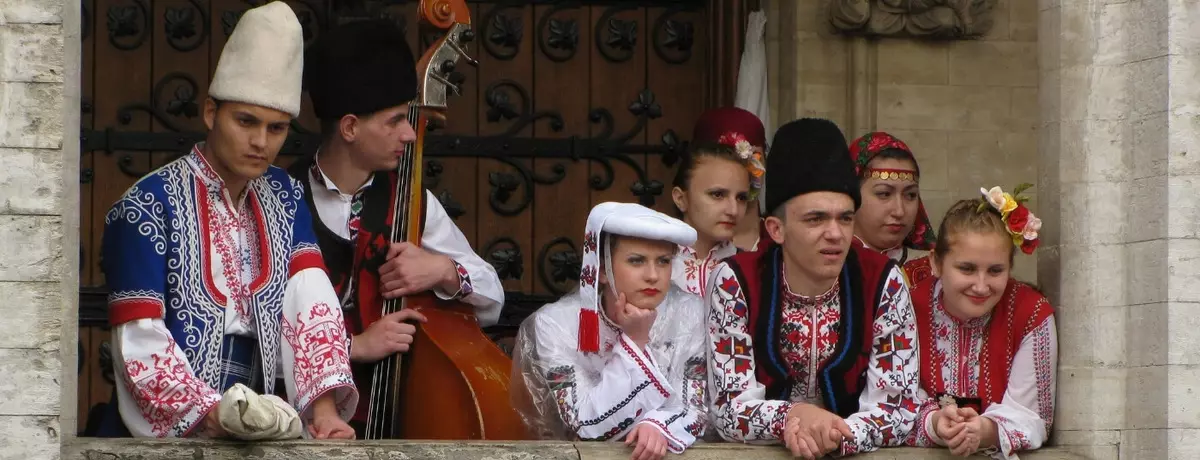
Bulgarians are often called southern Slavs Brothers, but, no matter how paradoxically, in all world wars, they turned out to be opposed by the Russians. A nice climate, the proximity of the sea is still at a long time attracted to Bulgaria both all sorts of tribes and adventurers.
Perhaps that is why the origin of the Bulgarians seems extremely mysterious even for modern historians. What is interesting, even in the language plan, this people belong to the Slavs, however, it has pronounced turkims and borrowing from the Greek law. What are they - mysterious Bulgarians? And how was the way of their life for many centuries?
History of Bulgarian people
Initially, the population of modern Bulgaria was called by Thracians. It was on these lands in the VI century to our era, one of the provinces of ancient Greece was one of the provinces - Frace. The Thracians were excellent soldiers who formed the Odris kingdom, which included part of Turkey, Romania, Greece, and, of course, Bulgaria.
But, despite the strength and power of the state of the Fracytsev, it could not oppose the army of Alexander Macedonian. In the IV century, the Macedonian Kingdom is occupied by the territory of Frakia, and in 46, our Era of the Earth is conquered by the Romans.
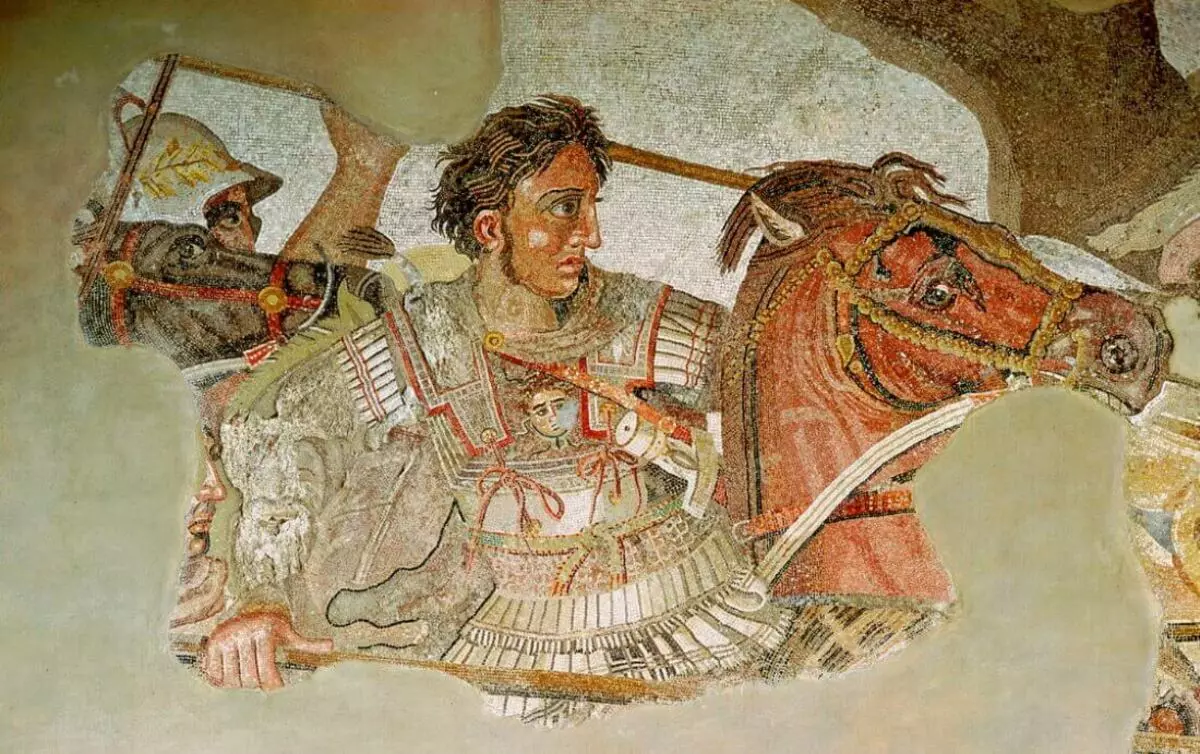
Two and a half century, Thracian tribes are under the rule of Byzantium. As you can guess, all these transition processes did not occur without a trace, reflected on the culture of local residents. However, nomadic tribes of the Bulgarians were the greatest impact on the formation of the Bulgarian people.
They united with the Slavs of neighboring lands, thanks to which the Byzantines managed to sue. Finally, Bulgarians as a people pass their formation during the spread of Christianity, that is, in the 9th century.
In the future, many years of the Ottoman Empire's authorities in the territories of Bulgaria also affected the peculiarities of the culture of the ethnos. The result was the emergence of the original and interesting people of Bulgaria.
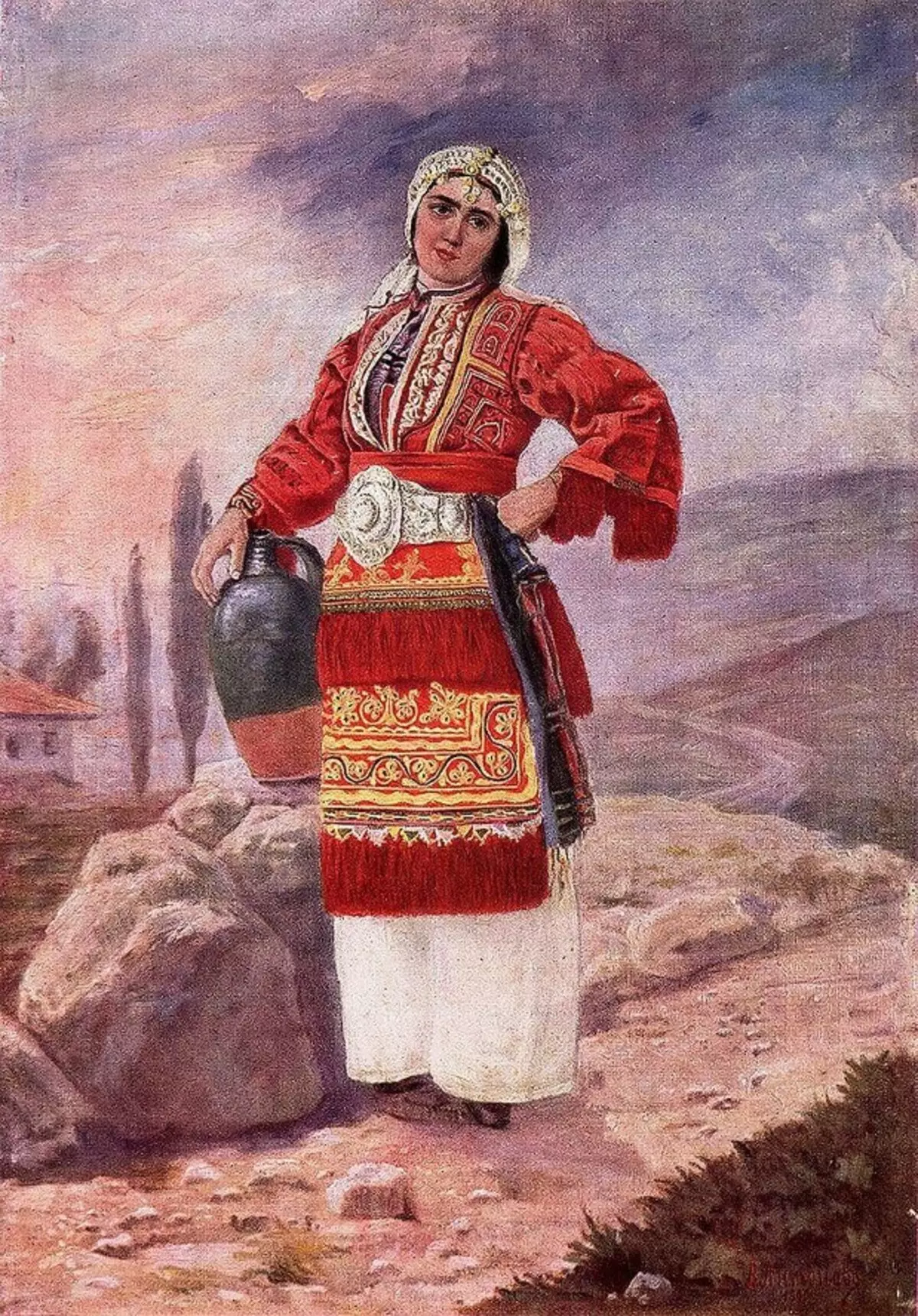
Bulgarians - musicians and builders
The culture of Bulgarians, oddly enough, influenced not only the change of power and the tribes who visited their lands. An equally important role belonged to the geographical location of these territories.
Proximity to the sea was the cause of brightly traceable Byzantine traditions in Bulgarian customs. The traditional architectural style of Byzantium is present in many old buildings of Bulgaria, for example, the Boyan Church and the Rillesky Monastery.
But the Folk Music of Bulgarians began to actively develop after the release of the Byzantines. At the time of the Second Bulgarian kingdom, John Kukuzel became the famous performer, which laid the foundations of traditional Bulgarian mess.
Many vocal researchers and musicologist are perplexed by the Bulgarian singers (in particular, opera performers) manage to execute parties with an unusually wide range. Bulgarians - truly musical people, and in some of his representatives it is possible to turn the "national" talent in a true miracle.
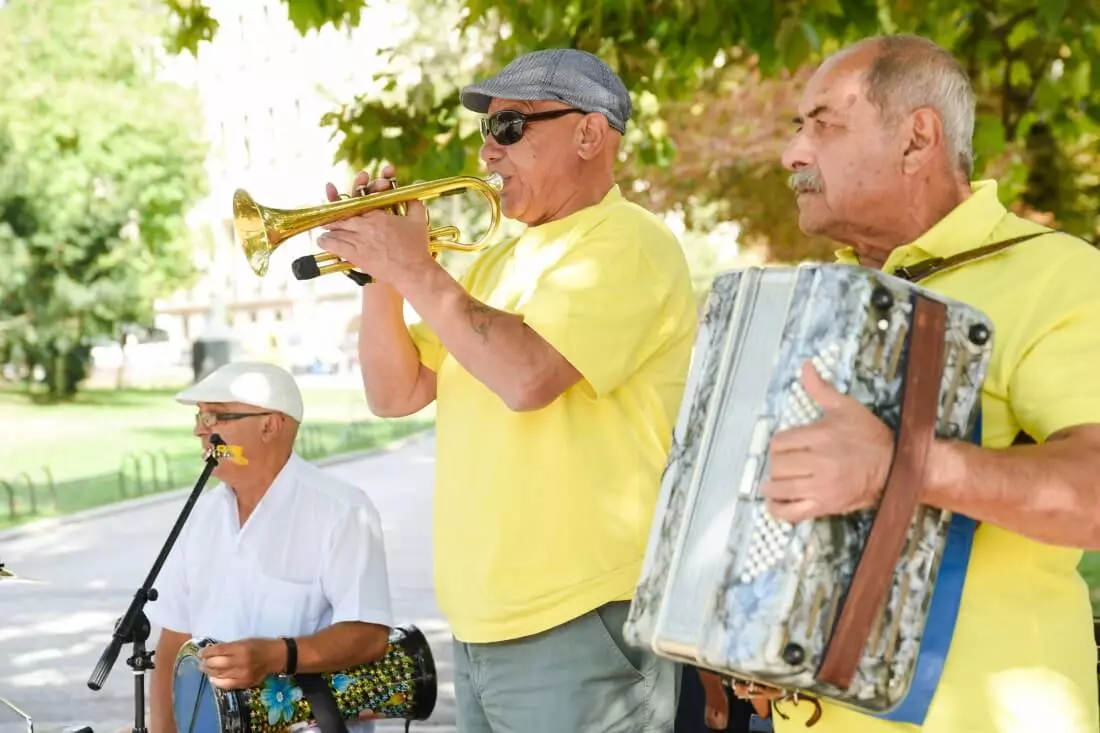
"Strange" gestures of Bulgarians
Russian travelers who come to Bulgaria celebrate "homemade" atmosphere, something native, which meets them in this country. The fact is that Bulgarians are the people, holy thancing traditions of hospitality. In addition, most of them are Orthodox Christians, which is also close to Russian.
Bulgarians are considered soft and loyal people. They are always waiting for understanding, and at any moment ready to support the interlocutor. Interestingly, when communicating with Bulgarian, denial is demonstrated by a nod of the head, and consent, on the contrary, shaking to the right and left.
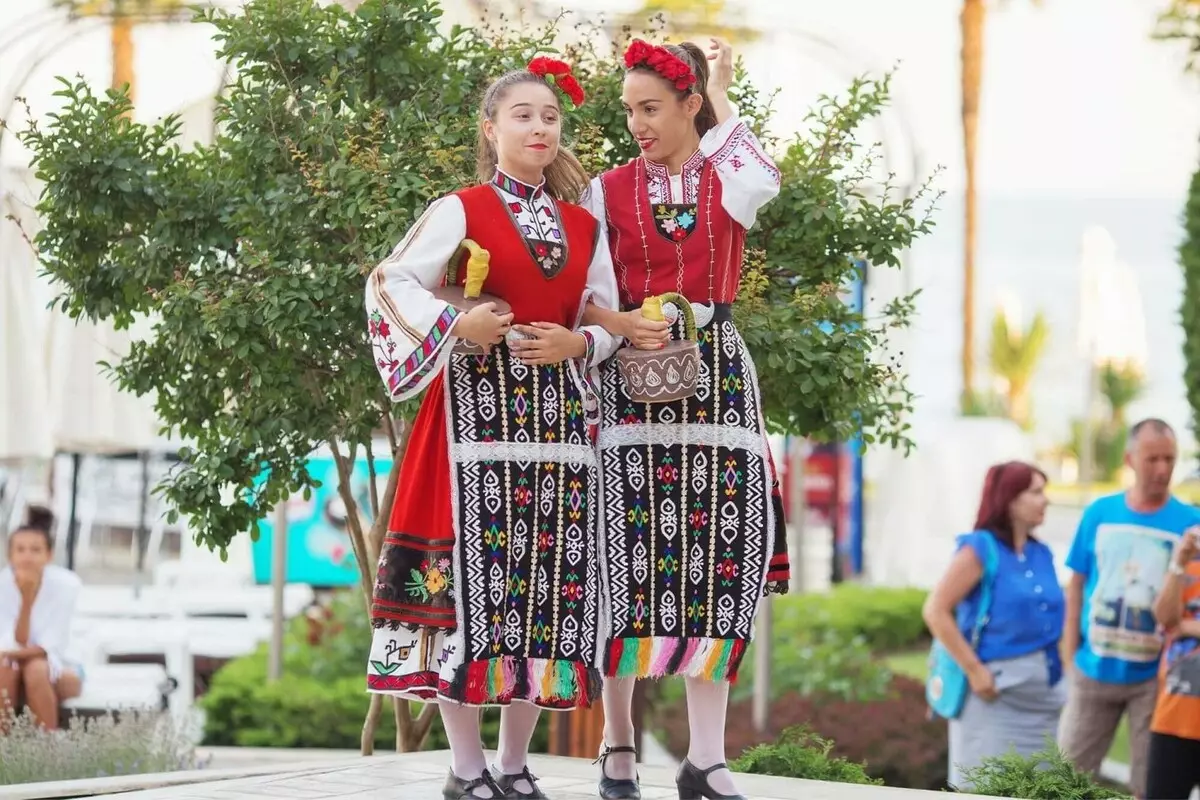
About why this gesture is so different from the consent-denial of other nations, there is a separate legend. According to her, during the power of the Ottoman Empire, the Turks forced the Bulgarian to abandon their faith. Puting a knife to the throat of man, they asked: "I agree?". That informally nodded, but was not going to betray the religions of the ancestors. As a result, Bulgaria is not at all as far as their closest neighbors, and these gestures can mislead foreigners.
Modern tourists characterize Bulgarians as a responsive people, which is distinguished by the spiritual warmth and ease of communication. True, they have one minor "vice" - Bulgarians love to talk and often hear gossip. These are very inquisitive people who can be extremely interested in everything that will seem unusual in man.
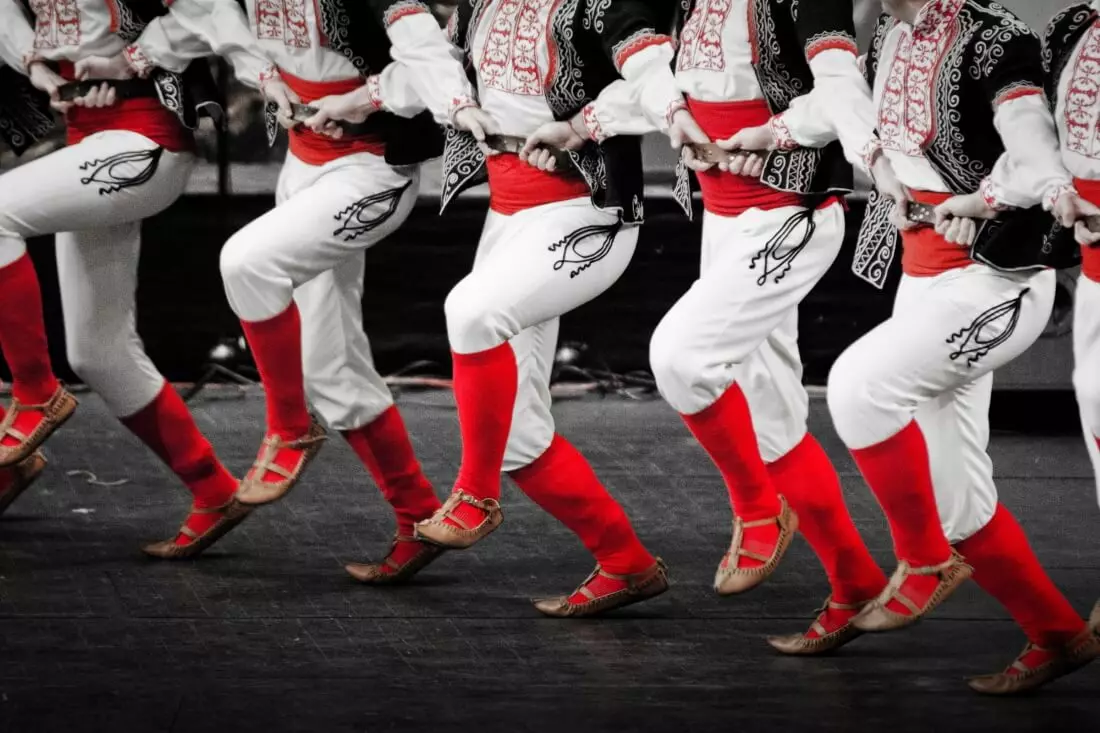
Kitchen and Bulgarian clothes
Bulgarian national cuisine is popular in many European countries. Preferably, it is simple and rich dishes that are easy to cook. Among the Bulgarian favorite treats are a lot of salads, for example, "Shopsky" or "Snezhanka", which is based on eggs, vegetables, dairy products.
As for Bulgarian clothes, the traditional costumes of this people are distinguished by beauty and sophistication. Also in them manifests the love of people to decorations.
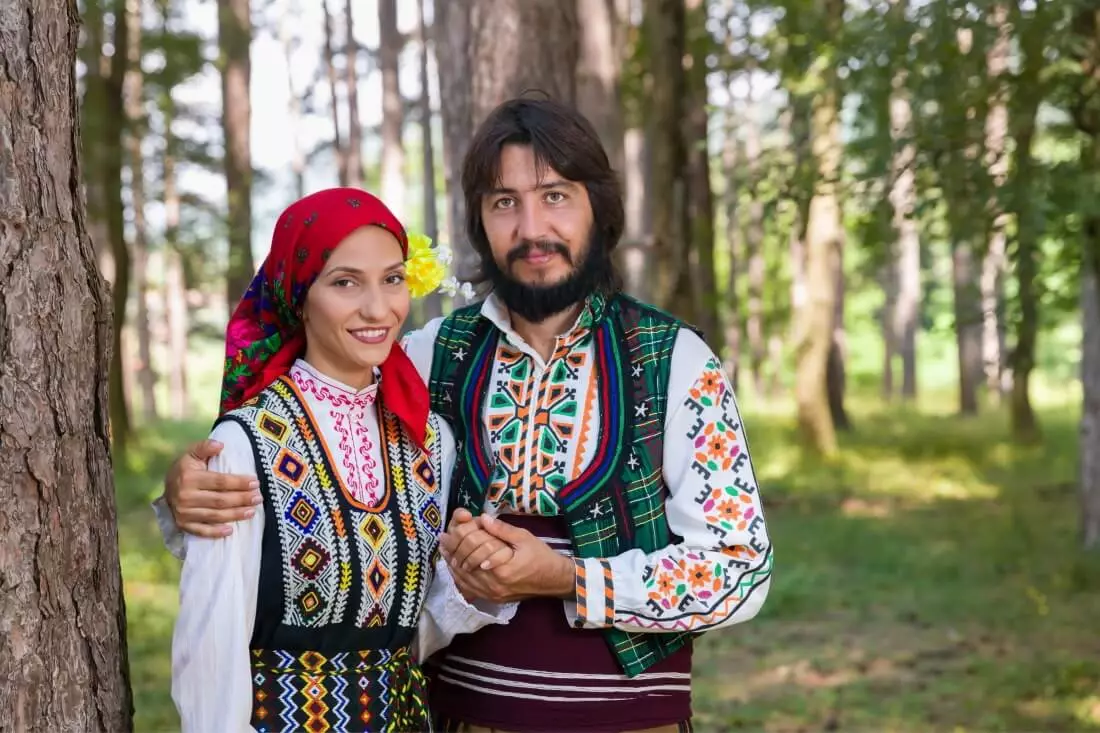
In the old days, even the peasants could afford to wear "sour" clothes, but noble Bulgarians flashed in costumes embroidered with gold and precious stones. Today, most Bulgarians prefer the classic style of clothing, although on folk festards you can see people closed in bright traditional outfits.
Bulgarians are an interesting and peculiar people. They are not called brothers, because they belong to South Slavic tribes. For a long and difficult story, the times of the authorities of other countries and the powerful peoples of Bulgarians managed to maintain the unique culture of their ancestors, which continue to do today. Want to better understand the Bulgarian? Then you can read about the feast of Surva or the wolf holidays in Bulgaria.
